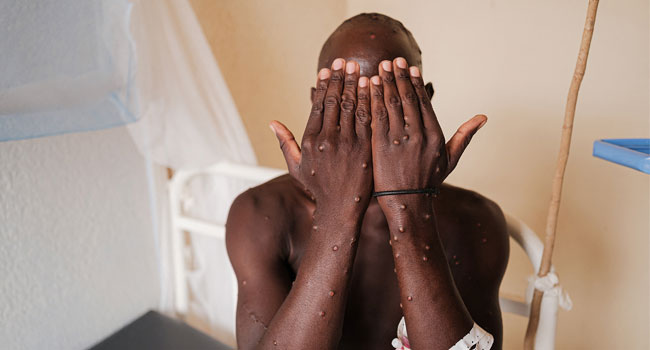Ghana has confirmed its first case of Mpox in 2024, as health officials announced on Thursday, highlighting the virus’s ongoing spread across Africa.
The patient, a young boy from the Western North Region, located about 475 kilometers from the capital, Accra, presented with typical Mpox symptoms such as a rash, fever, and body aches. According to Patrick Kuma-Aboagye, Director-General of the Ghana Health Service (GHS), the child has since been discharged and is in stable condition. Health authorities are closely monitoring 25 individuals who were in contact with the boy.
In a statement, Kuma-Aboagye noted, “The suspected case was isolated following established Mpox protocols.” Meanwhile, around 230 other suspected cases are under investigation in Ghana, sources from the GHS reported.
Across Africa, more than 860 people have lost their lives from over 34,000 Mpox cases recorded this year. Jean Kaseya, head of the Africa Centres for Disease Control and Prevention (Africa CDC), confirmed Ghana as the latest country to report cases, adding that 38 instances have been documented in the nation.
Mpox exists in two primary subtypes, clade 1 and clade 2. Clade 1, the more severe strain, has long been endemic in the Congo Basin, while clade 2, a less dangerous form, is now common in West Africa. Although GHS did not specify which clade was identified in this recent case, Ghana previously reported eight cases in 2023 and 120 in 2022.
Several African nations, including Nigeria, South Africa, the Democratic Republic of Congo, and Ivory Coast, have also reported numerous Mpox cases this year.
Kuma-Aboagye assured the public, stating, “We have activated our public health emergency systems and are investigating other potential cases. There is no cause for alarm.”
In August 2024, Africa CDC declared Mpox a Public Health Emergency of Continental Security, shortly after the World Health Organization (WHO) classified it as a Public Health Emergency of International Concern (PHEIC).
Mpox, a virus related to smallpox, typically spreads from animals to humans but can also transmit between people through close contact. Symptoms include fever, swollen lymph nodes, body aches, and a rash that develops into blisters.
A newer strain, known as clade 1b, was first detected in the Democratic Republic of Congo in September 2023, particularly among sex workers.


